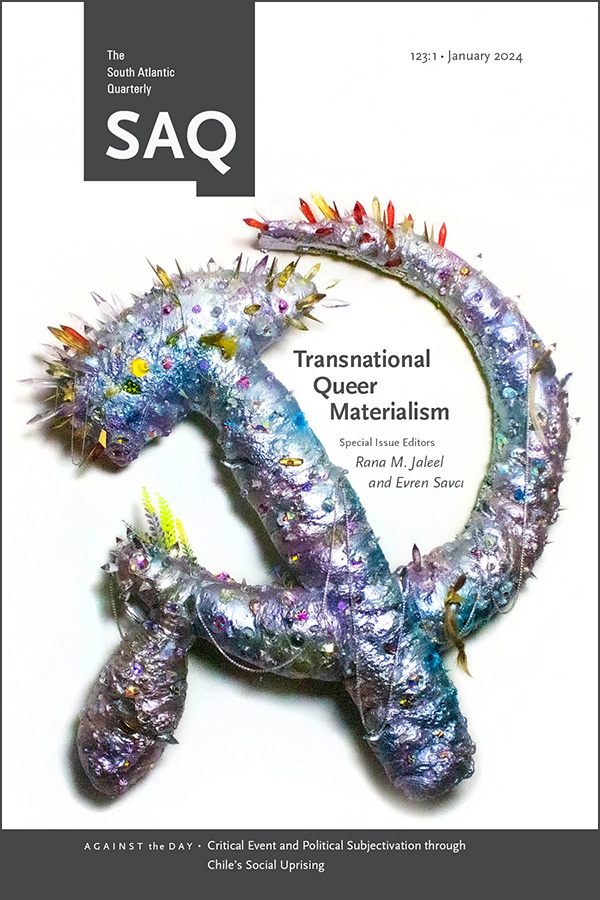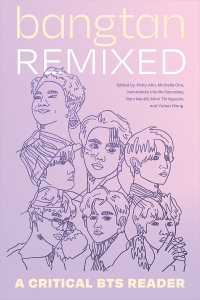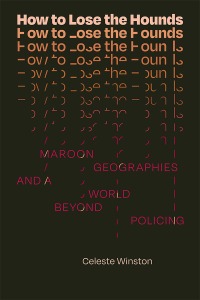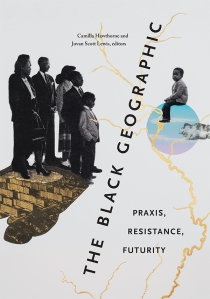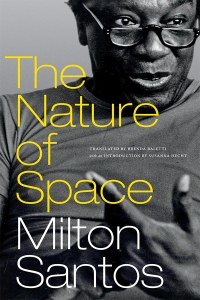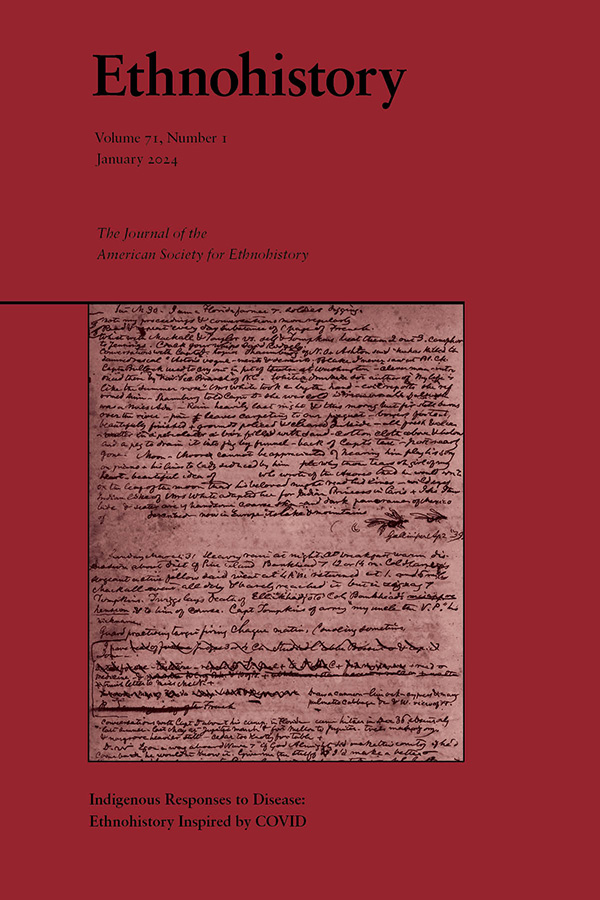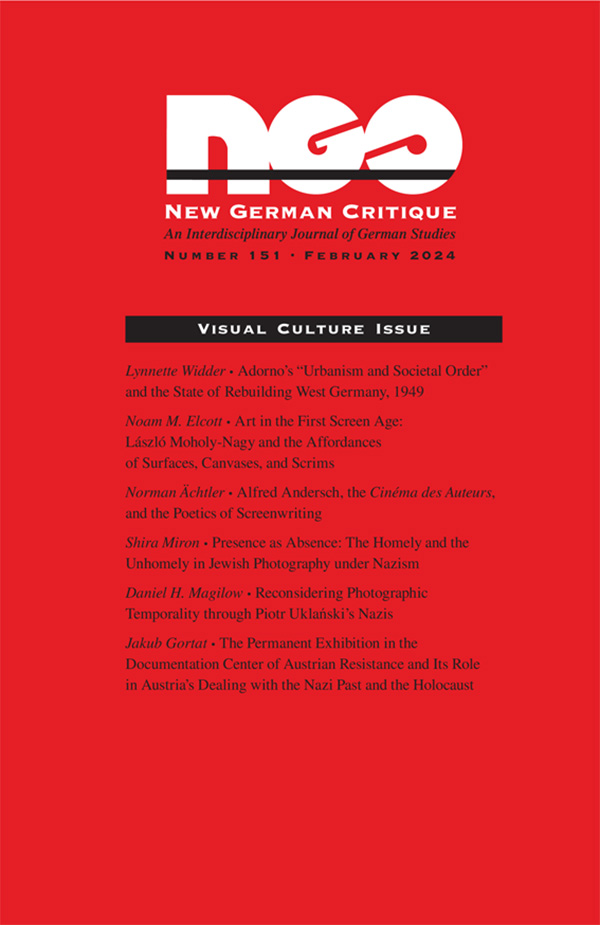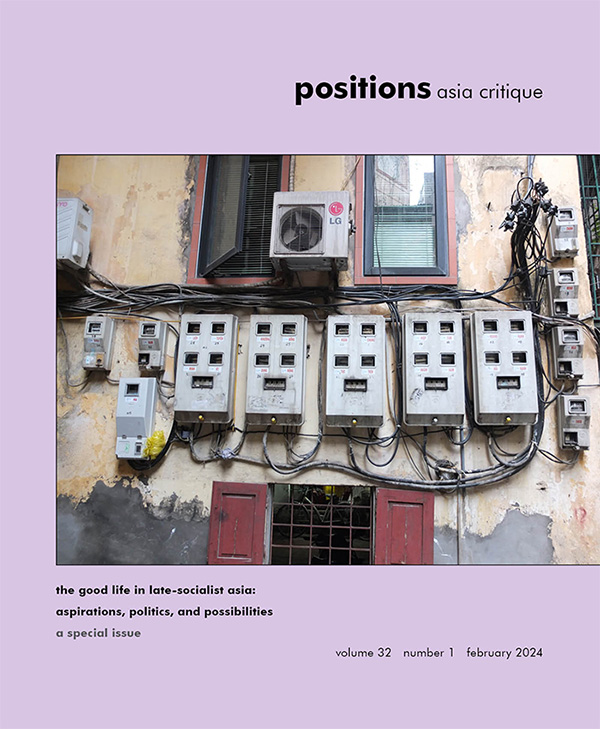The Weekly Read for May 11, 2024, is “A Tranifesto for the Dolls: Toward a Trans Femme of Color Theory,” a roundtable with Erique Zhang, Julian Kevon Glover, Ava L. J. Kim, Tamsin Kimoto, Nathan Alexander Moore, æryka jourdaine hollis o’neil, and LaVele Ridley. The article appears in “The Shape of Trans Yet to Come,” a recent special issue of TSQ: Transgender Studies Quarterly (10:3-4), edited by Abraham B. Weil, Francisco J. Galarte, and Jules Gill-Peterson.
Read this article for free through June 30, 2024.
Buy this special issue and use coupon code SAVE30 for a 30% discount.

On November 12, 2022, a group of trans women and femme scholars of color held a roundtable session titled “For the Dolls: Toward a Trans Femme of Color Theory” at the annual meeting of the National Women’s Studies Association (NWSA) in Minneapolis. Organized by Erique Zhang and featuring Julian Kevon Glover, Ava L. J. Kim, Tamsin Kimoto, Nathan Alexander Moore, æryka jourdaine hollis o’neil, and LaVelle Ridley, the roundtable sought to intervene into the growing field of trans studies to carve out a space that centers, rather than marginalizes, trans femme of color perspectives and experiences. The panelists represent various academic traditions and disciplinary backgrounds: Black studies, Asian American studies, literary theory, performance studies, philosophy, women and gender studies, queer and trans studies, and media and communication studies.
In this written dialogue, the authors build on the initial roundtable discussion to articulate what a trans femme of color theory might look like, one that positions trans femmes of color not only as objects of study but also as producers of knowledge and subjects central to the field of trans studies. While there are numerous overlaps, the authors do not theorize in unison or reach a consensus on the topics discussed. These divergences reveal the individual and collective intellectual strengths of the contributions without rendering the differences and distinctions to be threatening or antagonistic. Furthermore, the multiplicity of the authors’ theorizations reflects their ongoing commitment to tethering theory with praxis to reflect the boundless embodied knowledge that characterizes trans of color communities.
TSQ: Transgender Studies Quarterly offers a high-profile venue for innovative research and scholarship that contest the objectification, pathologization, and exoticization of transgender lives. It publishes interdisciplinary work that explores the diversity of gender, sex, sexuality, embodiment, and identity in ways that have not been adequately addressed by feminist and queer scholarship. Its mission is to foster a vigorous conversation among scholars, artists, activists, and others that examines how “transgender” comes into play as a category, a process, a social assemblage, an increasingly intelligible gender identity, an identifiable threat to gender normativity, and a rubric for understanding the variability and contingency of gender across time, space, and cultures.
The Weekly Read is a weekly feature in which we highlight articles, books, and chapters that are freely available online. You’ll be able to find a link to the selection here on the blog as well as on our social media channels. Enjoy The Weekly Read, and check back next week for something new to read for free.

